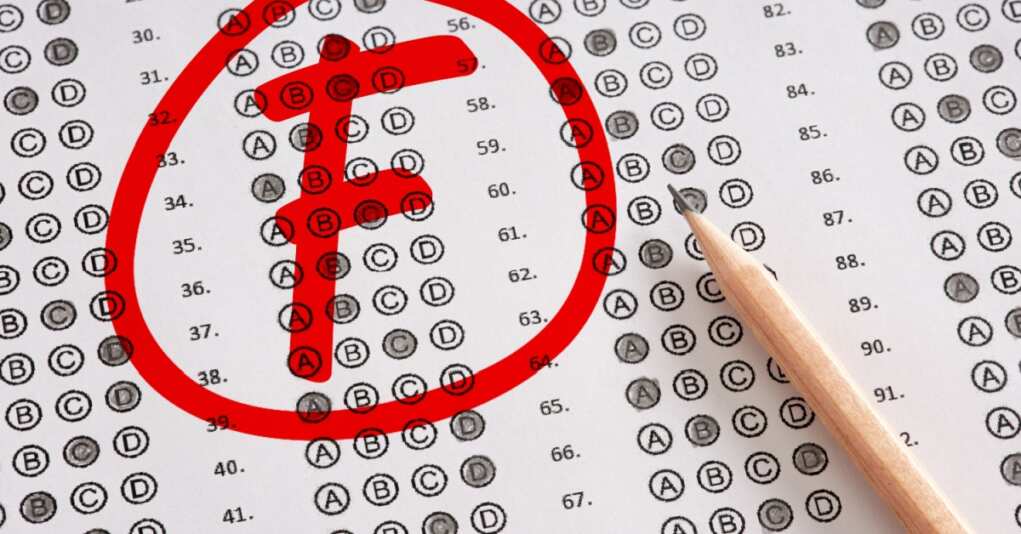American Schools Are Losing the Race: 1 in 3 Students Are Falling Behind

Let’s cut to the chase: the U.S. education system is a mess, and it’s getting harder to pretend otherwise. The latest National Center for Education Statistics (NCES) survey shows that nearly one-third of K-12 students were behind their grade level by the end of the 2023-2024 school year. That’s 32% of students lagging behind, and this isn’t just about a few kids struggling. It’s a nationwide crisis, but we’re all pretending it’s just another bump in the road.
How does the U.S. break down regionally? The West has a staggering 39% of students behind grade level, which is practically a call for educational triage. The Northeast and Midwest aren’t far behind at 31%, and the South, well, let’s give a little cheer—they managed to improve slightly, dropping from 34% to 29%.
Let’s compare this situation to those in countries like China, South Korea, and Japan. In these countries, education is taken as seriously as breathing. While our kids are falling behind, students in these countries are lightyears ahead, competing fiercely to get into top universities and snag high-paying jobs. Over there, falling behind isn’t an option—it’s unthinkable.
Meanwhile, here in the land of the free, we’re offering incentives just to get students to show up for class. That’s right, 69% of U.S. schools have resorted to bribing kids to attend. Imagine trying to pull that in South Korea, where students routinely spend extra hours in hagwons (private tutoring schools) after a full day at school.
The survey found that 32% of public-school students were behind by June 2024, which is practically unchanged from the 33% in 2021-2022.
The NCES report also revealed that 78% of U.S. schools reported students missing class for “minor symptoms.” Apparently, a sneeze is now all it takes to justify a day off. In contrast, Japanese schools emphasize attendance so heavily that students show up even with a cold, armed with a mask and a determination that would put most American students to shame. But here? We’re coddling our kids and wondering why they’re falling behind.
And let’s talk about chronic absenteeism. Nearly 6.5 million students in the U.S. missed 10% of their classes during the 2021-2022 school year. That’s like tossing out one day of learning for every ten. But hey, who needs consistent education, right? Meanwhile, in China, students are clocking in rigorous hours both in and out of the classroom, because falling behind means falling out of the race. Over there, education isn’t just a priority—it’s a survival tactic in a hyper-competitive society.
Reading and math scores in the U.S. are plummeting, with reading scores hitting their lowest point ever and math scores declining for the first time in history. In Japan, students master complex kanji and math problems that would make most American high schoolers break out in a cold sweat. Yet here we are, watching our scores drop and doing little more than wringing our hands about it.
And if you thought this was just a big-kid problem, think again. The youngest students—those who were toddlers during the pandemic—are now showing up to elementary school with behavioral issues and delayed motor skills. In Japan, students start learning how to hold a pencil and practice discipline from the moment they enter school. Meanwhile, we’re just beginning to realize that maybe, just maybe, something’s gone horribly wrong.
So, what’s the plan? We could throw our hands up and declare the system a lost cause. But maybe it’s time to take a page out of the playbooks of China, South Korea, and Japan—where education is treated with the seriousness it deserves. It’s not about throwing money at the problem or offering kids a gold star just for showing up. We need a full-scale overhaul that rethinks attendance policies, addresses chronic absenteeism, and genuinely invests in education.
Or we can continue down the path we’re on, where being behind grade level becomes the norm rather than the exception. But let’s be honest: if that’s the future we’re heading for, we might as well start getting used to America taking a back seat while the rest of the world speeds ahead.

